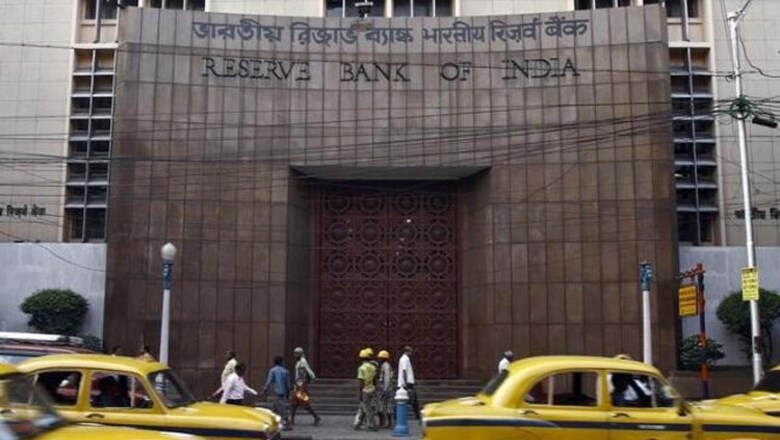
views
Mumbai: Indian banks have welcomed new rules that could allow them to take majority stakes in troubled companies as a warning to wayward entrepreneurs, even if the provisions will not apply to the bulk of struggling loans from past years.
The Reserve Bank of India (RBI), which has long sought to make majority shareholders more responsible for any failures, published rules late on Monday that allow lenders to turn loans to defaulting companies into equity in those firms of 51% or more.
India does not have formal bankruptcy legislation and banks, particularly state-owned lenders heavily exposed to infrastructure such as roads and ports, have struggled to recover much of the bad debt piling up on their balance sheets using available mechanisms.
RK Bansal, an executive director at state-run IDBI Bank Ltd, said on Tuesday the new rules were a positive step and a deterrent for irresponsible majority shareholders.
Yet he, like others, cautioned the changes would apply only to new debt and not to stressed loans already on banks' books, unless a specific provision was included in the original deal.
That still leaves banks with a 4.3 trillion rupees in older restructured loans and another 3.1 trillion rupees in bad loans to tackle before they can begin lending again in earnest.
"It might have come late," Bansal said. "Most of the restructuring, whatever was done, has been done earlier, before March."
Loans classified as bad accounted for about 4.4% of Indian bank loans as of March, according to rating agency ICRA. However, including loans that have been restructured, problematic loans hit 10.6%, acting as a drag on credit growth and the overall economic recovery.
Analysts and bankers cautioned that for debt-to-equity swaps to adequately address the issue, banks would also need to find a buyer in a market that remains tough.
"Taking over a company and finding a buyer ... obviously is a very long-term and not a very practical task," said Manish Agarwalla, a banking analyst at PhillipCapital (India) Private Ltd. "This will be the last resort"
But the change comes after months of tough talk in a country where high-profile cases can take years to resolve.
After the collapse of Kingfisher Airlines in 2012, for example, a consortium led by State Bank of India took over a key Mumbai property of that company only in 2015, a deal that will anyway only cover a fraction of what the banks are owed.
Uday Kotak, managing director of Kotak Mahindra Bank, a private sector lender, said the new measures would put some pressure on company owners. "The intent is as important as the outcome, and this is a step in the right direction."




















Comments
0 comment